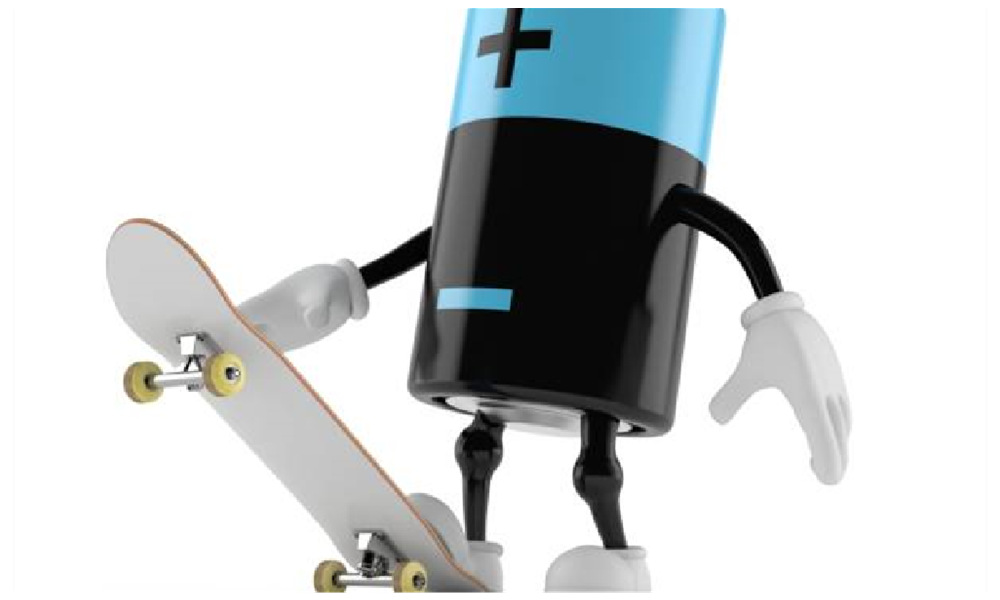An example of a lithium-ion (Li-Ion) rechargeable battery is a lithium iron phosphate (LiFePO4) battery. They offer greater power output, quicker charging, lighter weight, and long cycle life than the more conventional cobalt-based Li-Ion batteries. Additionally, the batteries have stronger safety features and do not blow up under pressure.
LiFePO4 batteries help ease worries about cobalt contaminating the environment through inappropriate disposal once their useful lives have passed. The following is a very clear Lifepo4 battery review, follow to find out more real information!
1. Is LiFePO4 A Good Battery?
Compared to lead-acid and other lithium batteries, a lithium iron phosphate battery (LiFePO4 or LFP) has several advantages. Some of them are increased discharge and charging efficiency, longer life term, no maintenance, maximum safety, and lightness. Although LiFePO4 batteries are not the most affordable on the market, they are a great investment because of their no maintenance.
2. What Are Its Benefits Over Other Types Of Batteries?
Some of the benefits of these batteries over other types of batteries are:
- Security and Continuity
The strongest safety profile of LiFePO4 batteries is a consequence of their incredibly stable composition. Compared to lithium-ion batteries created with alternative cathode materials, batteries based on phosphate have better chemical and thermal stability, increasing their level of safety. The incombustibility of lithium phosphate cells is a crucial property non the event of errant handling while charging or discharging. They can also resist extreme weather, such as bitter cold, sweltering heat, or rugged terrain.
- Performance
Performance is a key consideration when deciding which kind of battery to employ in a specific application. Lithium batteries are a desirable alternative because of their extended lifespan, low self-discharge rates, and lightweight, and they are predicted to last longer than lithium-ion batteries. Runtime substantially outperforms lead-acid batteries and other lithium formulations, and the service life is typically measured in five to ten years or longer. Another useful performance benefit is a significant reduction in the time required for battery charge.
- Space Savings
The space-saving qualities of LiFePO4 are also important to note. LiFePO4 offers an efficient approach to utilizing weight and space since it weighs roughly one-third as much as the majority of lead-acid batteries and nearly half as much as the well-known manganese oxide. They make your product’s overall efficiency higher.
- Impact on the Environment
LiFePO4 batteries are an eco-friendly option because they are non-toxic, non-contaminating, and don’t include rare earth elements. Batteries made of nickel oxide and lead acid pose a serious environmental threat.
Lithium iron phosphate batteries have several benefits over lead-acid and other lithium batteries. These include increased discharge and recharge efficiency, a longer lifespan, and the capacity to deep cycle while retaining performance. Although LiFePO4 batteries frequently carry a higher price tag, their premium cost throughout the product’s life, need for little maintenance, and occasional replacement makes them an excellent long-term investment.
3. Choose The Right LifePO4 Battery Review For Your Needs
It would be best if you considered the following things when going through a lifepo4 battery review:
- Lithium Battery’s Chemical Makeup
The safety and endurance of your energy storage system are directly impacted by the lithium battery chemistry, which is significant. Unlike the cobalt-oxide bonding in cobalt-based lithium batteries like NMC, LCO, and NCA, which is weaker, the oxygen and phosphorus atoms in LFP batteries are strongly bound together by covalent bonding. The phosphate-oxide bond’s greater stability makes this useful. LiFePO4 batteries can get mounted on their side and in more space-constrained compartments because of their improved chemistry, which increases safety.
- Manufacturing Company
The usage of LFP batteries in high voltage applications is still fairly recent, even though the first commercial lithium-ion battery got created more than three decades ago. Therefore, top-tier lithium battery producers have had to continuously develop and increase their technical expertise to keep a competitive edge. Since lithium batteries use far more advanced technology than lead-acid batteries, it takes highly developed technical skills and knowledge to design, manufacture, test, and produce the highest-quality lifepo4 batteries.
- Certification to UN38.3
Lithium batteries must pass a stringent testing and certification process to get approved for shipping and fulfill UN38.3 criteria. Although certification is the seller’s duty, many types of products do not adhere to the UN38.3 standard. The battery must pass eight rounds of testing, including altitude, heat, vibration, stress, short circuit, contact, crush, and forceful discharge, without rupturing, leaking, disassembling, or catching fire. These examinations offer the customers a vital measure of protection.
If you have more Lifepo4 battery review that is more suitable for your actual needs, I would be very happy to see you leave a message below.

4. What Can A LifePO4 Battery Do?
Some applications of lifepo4 batteries are:
- E-Bikes
Many people are switching from lead-acid batteries to LiFePO4 batteries. LiFePo4 batteries are perfect for e-bike applications because of their many benefits, which include high specific capacity, significantly improved cycle life, and very low weight.
- Boats:
For operating small boats, lifepo4 batteries provide many benefits. Because LiFePo4 batteries are significantly lighter than conventional lead-acid batteries and have a significantly longer cycle life, they are perfect for use in small boats.
- Solar:
It is possible to pair LiFePO4 batteries with a solar panel and controller. The LiFePO4 battery can get charged while the solar panel powers an electrical load. LiFePO4 batteries have an exceptional cycle life when compared to lead-acid batteries.
- Energy Reserves:
In situations without access to electricity, LiFePO4 batteries can be used as an energy storage solution to power a variety of electrical loads by combining them with inverters and converters.
5. How Do You Care For Your LifePO4 Battery To Last As Long As Possible?
Lithium batteries using LiFePO4 chemistry have recently gained popularity for various applications since they are among the market’s strongest and longest-lasting battery chemistries. They can endure up to ten years with proper care. To guarantee you get the most use out of your battery investment, please take a moment to read some suggestions mentioned in this LiFePO4 battery review:
Continual Recharging And Shorter Cycling:
If you keep lithium batteries from experiencing too deep discharges, the battery will last longer. Except in the circumstances, we advise adhering to a maximum DoD of 60–80 percent.
Before Installation, Clean The Terminals:
When air exposure occurs, the aluminum and copper terminals on top of the battery will eventually develop an oxide film. Before attaching the battery connector and BMS module, brush off any oxidation from the battery’s terminals with an aluminum wire brush. Bare copper battery interconnects should also get cleansed if they are being used. It was all about the LiFePO4 battery review!


LiFePO4 batteries, known for their long life and
stability, are a specific type of lithium-ion battery that
uses lithium iron phosphate (LiFePO4) as the cathode
material. Deep cycle batteries, designed for
long, sustained power delivery rather than brief bursts of energy,
are ideal for applications where energy needs to be supplied over a longer period,
such as in electric vehicles (EVs), solar power storage, and backup power systems.